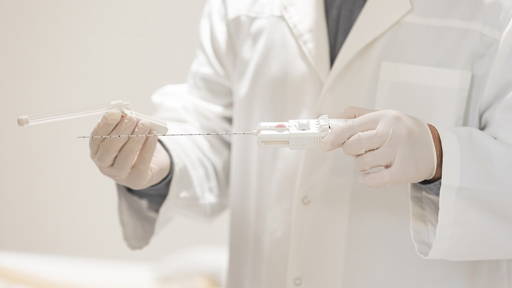With the advent of new treatments for Alzheimer's, early and accurate diagnosis is becoming increasingly crucial. General practitioners play a key role in this, but often lack the resources or time to conduct extensive cognitive examinations. Researchers at Lund University have therefore developed a digital cognitive test that can be taken independently by patients and supports GPs in the early detection of possible Alzheimer's disease.
The results of the study, published in Nature Medicine, show that the test can be a valuable tool in determining which patients are eligible for follow-up testing with blood tests for Alzheimer's pathology. ‘Most people with memory problems first report to their health centre. With our digital test, we get an objective picture of their cognitive functioning at an early stage,’ says Professor Oskar Hansson, professor of neurology in Lund.
More than pen and paper
Where traditional pen-and-paper tests provide only limited insight, the new digital tool offers a much more detailed picture. The test, which is performed on a tablet, measures multiple cognitive domains such as memory, processing speed, orientation, delayed recall and recognition. In addition, the tool also records variables that were previously difficult to measure, such as reaction times and the speed of tapping movements.
This richer dataset enables doctors to determine with greater precision which patients are likely to have underlying Alzheimer's pathology. ‘What is unique about our BioCog test is that it has been extensively evaluated in primary care, among patients who actually reported memory complaints,’ says PhD student Linda Karlsson.
The digital test is performed individually by the patient on a tablet and measures the following:
- memory (remembering 10 words)
- cognitive processing speed and attention (how quickly or slowly they process information)
- orientation (what year, what day, etc.)
- delayed recall (recalling previously memorised information)
- recognition (recognising the ten previously memorised words from among 30 words)
Efficiency and future prospects
Currently, blood tests that measure phosphorylated tau are only available in specialised memory clinics. In time, these will also find their way into primary care. However, the aim is not to refer all patients with memory complaints, but to select them more specifically. The digital cognitive test can play an important role in this.
Combining the results of the digital test with blood tests significantly increases the accuracy of the diagnosis. This enables doctors to better identify patients who may benefit from the new Alzheimer's treatments. The researchers therefore see the tool as an important step towards value-driven and accessible dementia care: GPs gain more certainty within the limited consultation time, patients receive clarity more quickly and unnecessary referrals are avoided.
Alzheimer's diagnosis
There are more developments aimed at diagnosing Alzheimer's at the earliest possible stage. Earlier this year, for example, we wrote about research into another promising method: a smell test for home use. That research showed that older adults with cognitive impairments performed less well than cognitively healthy adults. A finding that, according to the researchers, highlights the potential of the smell test for early diagnosis of neurodegenerative disorders.
In 2022, American researchers developed a smartphone app that can identify early risks of Alzheimer's disease through pupil response tests. The app measures subtle changes in pupil size during cognitively challenging tasks, which may indicate early degeneration in areas of the brain affected by Alzheimer's disease. Because early detection is crucial for effective treatment, this app offers an accessible and inexpensive screening method that can be used on a large scale.







